Are you looking to start your own property management company in the state of Michigan?
While this endeavor is certainly worthwhile in the long run, it can be complicated to navigate Michigan’s legal hurdles, coupled with the many tasks and responsibilities that come along with running your own business.
Luckily, you have come to the right place!
Once you get to a point where you are ready to start your own property management company, it may feel daunting to finally get started on reaching your goals.
After all, starting any business can be stressful, and property management is no different.
However, there are many things that you can do to set your new business up for success in the long run.
In this blog post, we will go over our top 7 steps for starting your own property management company in Michigan.
Our goal is to break down all of the responsibilities and tasks that you need to do in order to start your business on the right foot and avoid the common pitfalls and mistakes that many others may run into.
So, if you are ready to get started and learn more about how to start your property management company in Michigan, then keep reading!
What Exactly Does a Property Manager in Michigan Do?
A property management company in Michigan mainly oversees a wide range of rental properties on behalf of property owners and landlords.
They take care of maintaining the properties and work to maximize the owner’s profit. They also serve as intermediaries between property owners and tenants.
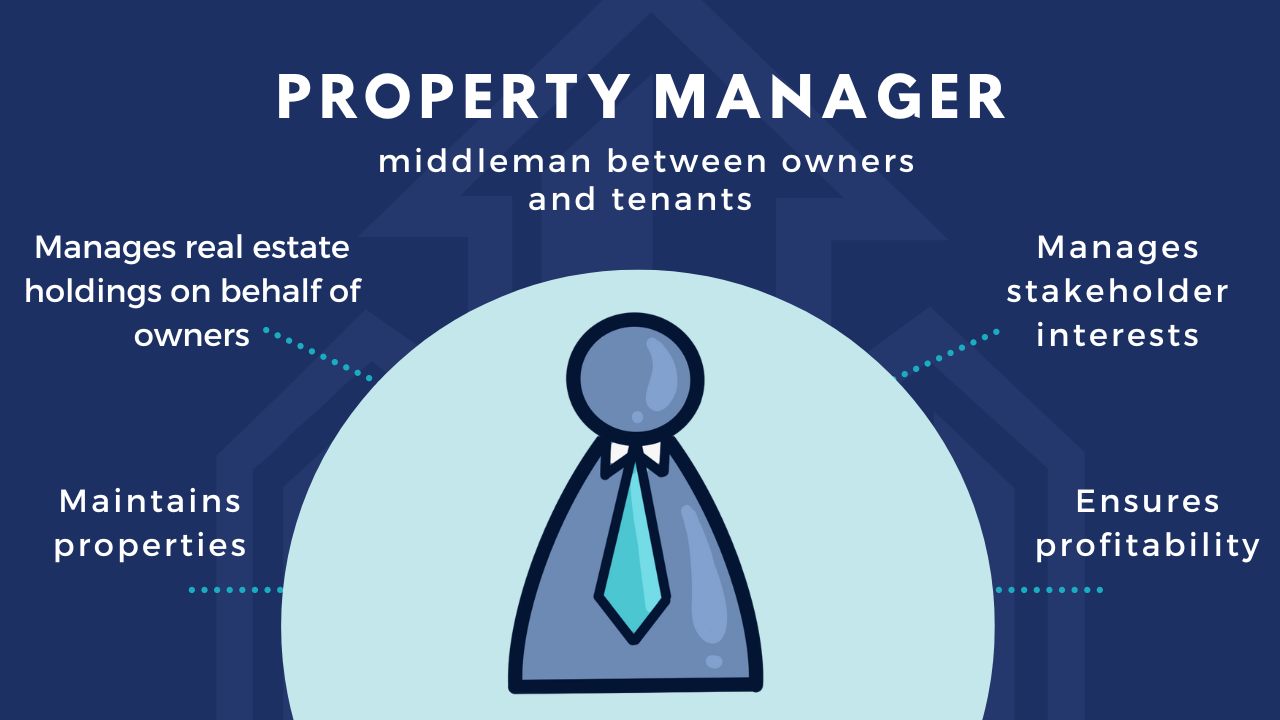
In Michigan, property managers can handle various different types of rental properties, including small to large apartment or condo developments, as well as single-family homes.
In their day to day operations, property managers will interact with different stakeholder groups, such as owners, tenants, prospective tenants, and contracted maintenance workers.
Balancing these relationships is essential for ensuring profitable, well-maintained, legally compliant, and tenant-friendly rental properties.
Property managers in Michigan must also navigate numerous legal and ethical considerations, which we’ll delve into later in this blog post.
Despite the challenges, running a property management business in Michigan can be well worth the effort if it is done correctly
Property management companies in Michigan come in various sizes, ranging from sole proprietorships to large entities managing multiple tenant complexes or resorts.
Regardless of size, property managers must always prioritize risk management and effective business practices in order to truly maximize their income.
So, what makes a truly successful property manager?
There are 3 main qualities that every property manager who wants to succeed should possess.
First, you will need to be able to stay organized, even when there are many different tasks and situations thrown at you. This is crucial to the operation of your business.
Second, you must be able to keep working and stay determined, even when your job becomes challenging.
This is essential, as property management can be a stressful job, and you will have to keep working through the more difficult seasons in order to see the rewards.
Lastly, property management is a very social job, so you must have top notch communication skills in order to succeed.
Over the span of your career in property management, you will have to communicate with all kinds of people, from tenants and owners to contractors and even other real estate professionals.
If you do not have excellent communication skills, it may be difficult for you to find success in this field.
So, if you’re considering property management as a career path in Michigan, here are seven steps to establish your property management company and get started on the path to success.
While it may not cover everything, these steps will help you gain an even larger understanding about what it takes to be a property manager in Michigan.
So, if you’re ready to learn more, then let’s dive in!
Step 1: Structure Your Michigan Property Management Company
Establishing yourself as a reputable property management company in Michigan begins with selecting a great name and legally registering your business.
Setting up a legal entity can be complex, so consulting with a corporate accountant in your area is advisable.
Local Chamber of Commerce organizations can also offer valuable guidance on registration procedures.
Crafting a comprehensive business plan is absolutely essential if you want to make informed decisions about your company’s structure and mitigate any personal and professional risks.
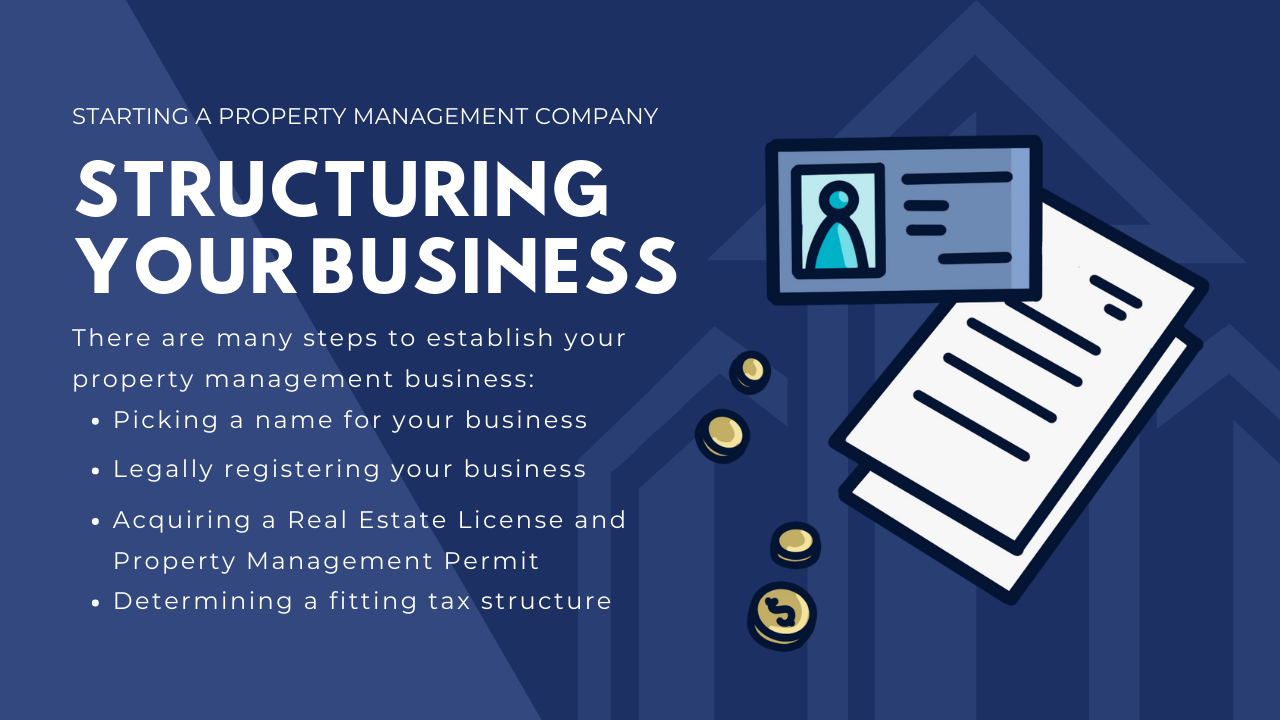
Each state, including Michigan, may have specific legal requirements for property management businesses, so you will need to do your research first and foremost.
To become a licensed property manager in Michigan, obtaining a Real Estate Broker License is necessary.
Eligibility typically requires a four-year college degree or relevant work experience as a licensed real estate salesperson.
Additionally, completing college-level courses in real estate is mandatory before taking the broker exam. Fees for the exam and licensing should be anticipated and prepared for.
Once you are licensed, you can begin to think about the structure for your business. Choosing the right business structure, such as a Limited Liability Corporation (LLC) or an S-Corp/C-Corp, requires careful consideration and research.
Consulting with legal or financial professionals experienced in corporate tax matters is highly recommended.
Property management businesses have unique legal responsibilities, so thorough research is crucial in determining the most ideal structure for your needs.
Once your business is registered and structured for tax purposes, initiating the necessary legal procedures is vital for safeguarding assets and mitigating potential liability risks.
Step 2: Create a Strong Legal Contract for Your Michigan Property Management Company
After registering your company as a legal entity and structuring your business in Michigan, it is absolutely crucial to develop a strong legally binding contract for your company’s new clients.
We advise starting this process early on in your business to give yourself sufficient time and resources, including potential attorney fees.
Working with a property management-focused attorney can help you ensure a more comprehensive protection against liability, fraud, and other risks associated with potentially difficult clients.
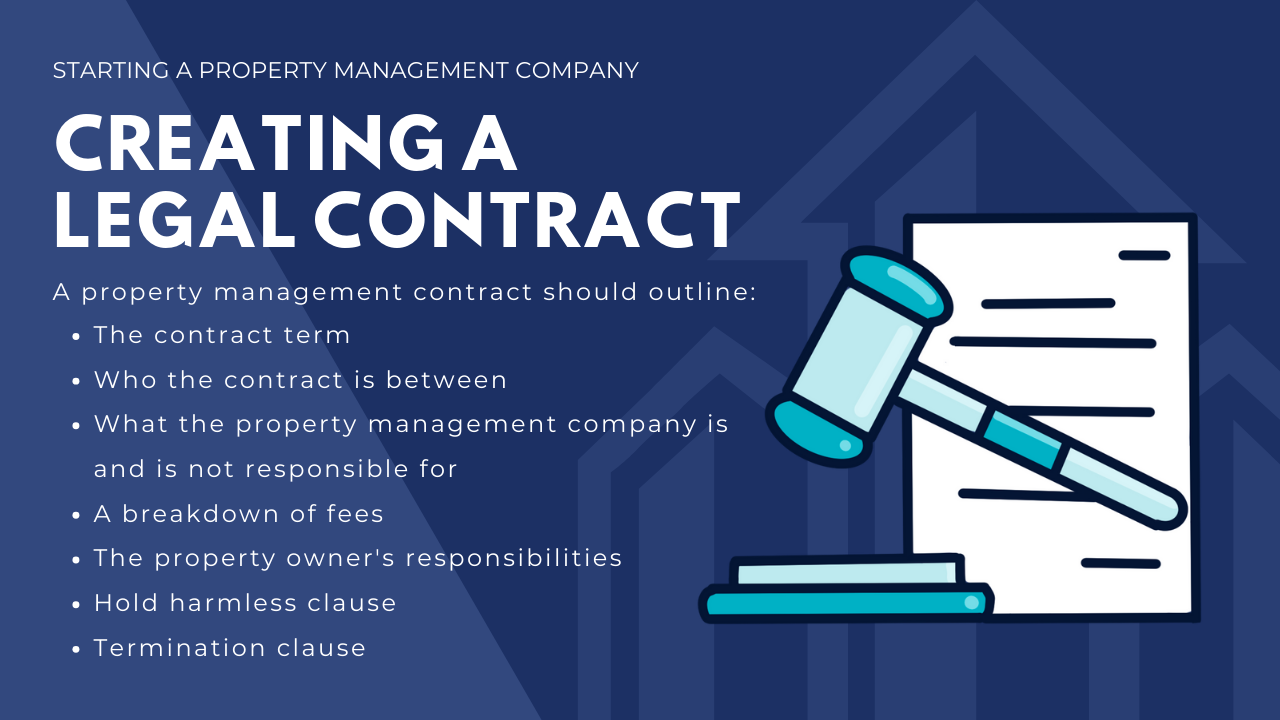
A property management contract should meticulously adhere to all Michigan laws and cover any essential aspects related to your services, including:
– The duration of the contract.
– All parties involved (your company and property owner).
– Responsibilities of the property management company, such as property maintenance, tenant acquisition, leasing, evictions, tenant management, rent collection, repairs, and any other monthly obligations.
– Everything that your company is not responsible for in relation to the rental property.
– A breakdown of all fees payable by the property owner to the management company.
– Obligations of the property owner.
– Inclusion of a hold harmless clause, absolving parties of legal liabilities in case of injuries or damages.
– Termination clause, outlining the conditions for contract dissolution with or without penalties.
Step 3: Develop a Business Plan for Your Property Management Company in Michigan
As you progress in establishing your Michigan-based property management company, it is important to consider both your short and long-term goals and come up with a strategy to scale your operations accordingly.
Typically, property management companies are structured in two ways:
- Single Property Manager Model: In this setup, a single property manager oversees all client and tenant interactions. This manager may subcontract work to other businesses or contractors.
- Employee-Based Structure: Alternatively, some companies opt for a structure with employees on payroll. This ensures a more equitable distribution of tasks, allowing each employee to specialize in a specific aspect of the business.
While these are common structures, it’s important to remain flexible. Many property managers initially start as sole proprietors who hire contractors, however they may transition to an employee-focused model as their business expands and their daily workload grows.
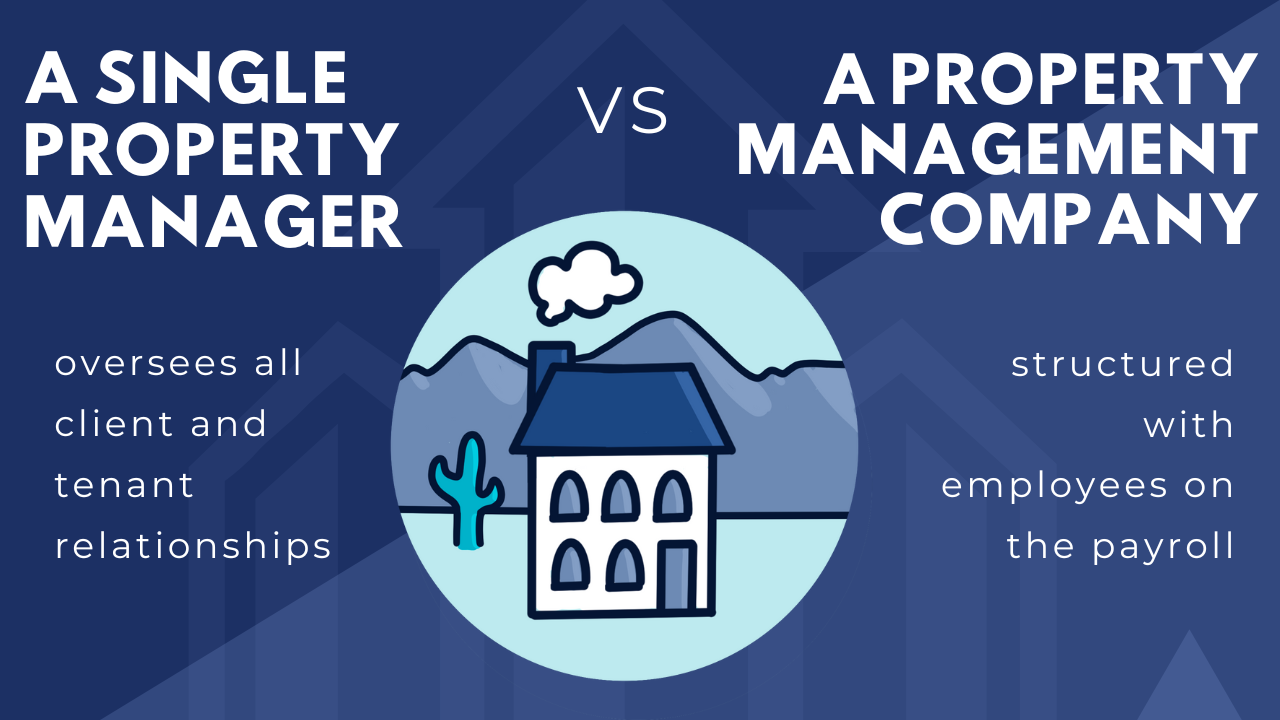
Expanding your business usually means that you will have to fill various roles within your company.
Delegating your workload is essential as your company grows, as you cannot offer clients high quality services if you are burnt out or working with too small of a team.
Roles that you may have to fill over time include full-time, part-time, and contract-based positions such as:
– Additional property managers to oversee multiple properties.
– Administrative support for your company’s office operations.
– Sales representatives to nurture client relationships and attract new business.
– Human resources professionals to manage payroll and benefits.
– Finance professionals to handle accounts.
– Leasing agents, showing coordinators, and tenant managers.
– Maintenance managers and staff for routine and emergency repairs.
– Service coordinators.
– Marketing specialists for web presence and social media.
Additionally, certain contract-based roles are crucial:
– An experienced accountant familiar with property management.
– Retained real estate attorney or law firm.
– Contractors for specialized maintenance tasks.
– Information technology (IT) staff for system management.
It is essential that all vendors, employees, and contractors comply with Michigan’s state and local regulations, have all relevant qualifications, provide insurance, and sign contracts outlining their responsibilities and liabilities.
At the end of the day, the quality of your team reflects on your business, so thorough research and selection of qualified professionals is crucial for your long term success.
Step 4: Find the Best Property Management Software for Your Business
Managing a property management company in Michigan often involves juggling numerous competing priorities on a daily basis.
Given the relationship-driven nature of property management, maintaining a high level of responsiveness and professionalism is crucial in protecting your company’s reputation, which is ultimately your most valuable asset in the industry.
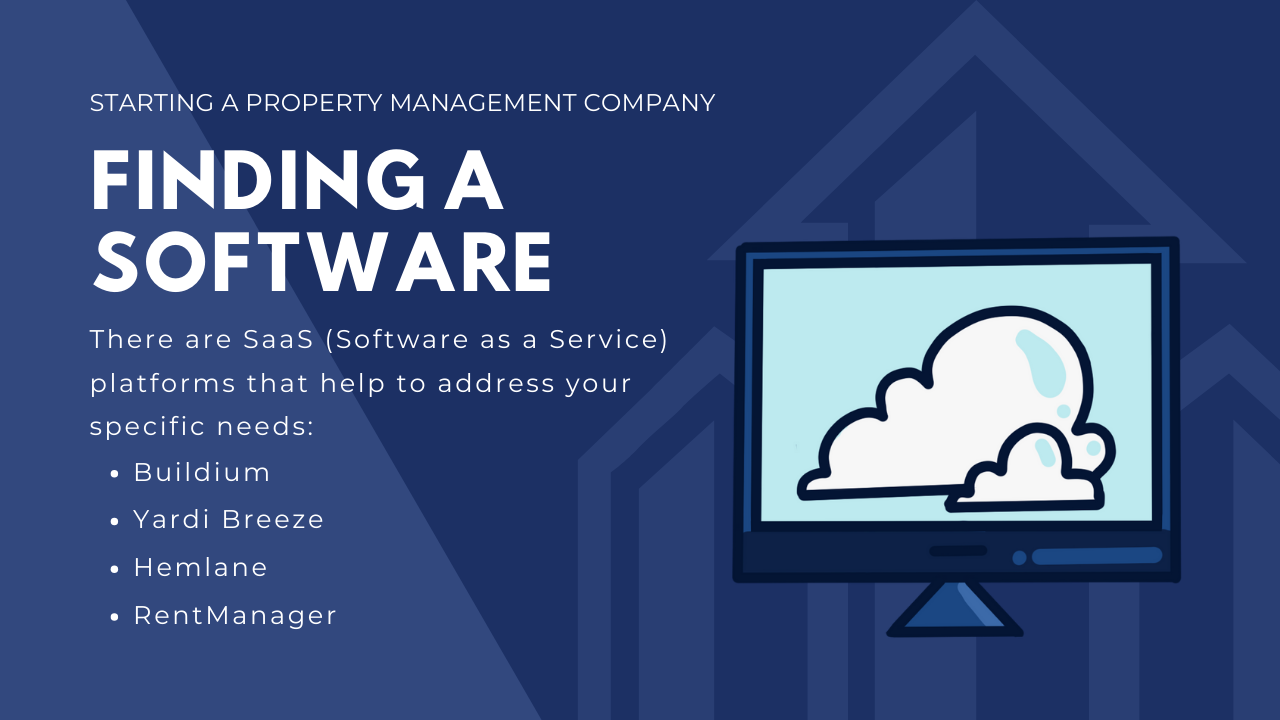
When you are addressing various business needs in any industry, using software solutions can be a game changer, and property management is no exception.
Selecting the right software for your company can be daunting, but it is crucial to opt for a product that offers scalability to accommodate your current and future business needs.
Several Software as a Service (SaaS) platforms on the market today cater to property managers’ specific needs, including:
– Buildium
– Yardi Breeze
– Hemlane
– RentManager
However, especially in the initial stages of your business, you are not necessarily limited to these options.
With the right amount of research, you can find SaaS tools that are specifically designed to help you automate tasks such as tenant rent collection, maintenance tracking, email management, and document sharing.
While these individual platforms may not offer the same level of integration as all-in-one software, they are often more cost-effective and can support your business’s growth in its early stages.
Step 5: Market Your Michigan Property Management Company and Attract Leads
Across all industries, a common misconception among businesses, including property management companies, is that marketing efforts end once leads are acquired.
However, this couldn’t be further from the truth.
The truth is, consistent and intentional marketing for your property management business is absolutely essential for both short and long-term success.

For this reason, investing in a strong marketing strategy from the outset of your property management company is highly recommended.
Many property managers opt to outsource marketing tasks to agencies or freelance professionals.
To establish your company’s industry credibility, it is important to take the time to build a strong digital and local marketing presence.
The key aspects of your marketing strategy should include the following:
An Engaging and Professional Website
These days, a professional property management website serves as your digital storefront, leaving a lasting impression on potential clients.
For this reason, it is crucial to get that first impression right and invest in a high quality and engaging website for your property management company.
We highly recommend making sure that your website is SEO optimized, professional, and that it includes any relevant information about your company.
Your website represents your company, so it is important to make it the best that it can be.
While DIY website platforms like WordPress, Squarespace, and Wix exist, hiring professionals can give you a better shot at elevating your property management company’s online brand and optimizing your website’s performance as an asset for your business.
Marketing Content and Assets
The ideal amount of marketing content includes anything that you would use to promote your business and gain a wider audience.
This can be anything, such as social media content, business cards, brochures, digital guides, and blog posts.
While your website should be your first priority before spending too much on other kinds of marketing content, these materials will reinforce your property management company’s overall professionalism and brand identity.
Most importantly, it does this all while getting your business in front of new eyes that have the potential to become new clients.
Networking
While many property management companies choose to place their marketing efforts into online strategies, networking remains a vital component in growing your local presence.
Building relationships with other real estate professionals and investors can lead to valuable industry connections and even potential clients.
Consider joining organizations like the National Association of Residential Property Managers for industry insights, training, resources, and networking opportunities.
As we mentioned before, property management is an extremely social profession, so we highly recommend placing an importance on networking in your local real estate community on a regular basis.
You never know what kinds of business opportunities can come from this!
Step 6: Identify Your Property Management Company’s Ideal Fee Structure
Once you have settled on the structure of your Michigan-based property management business and done everything you can to attract your first few clients, it’s time to establish your fee structure. This is a pivotal stage in your business development.
Setting the right price for your services is crucial to your property management company’s overall success. Underpricing your services may compromise your company’s credibility.
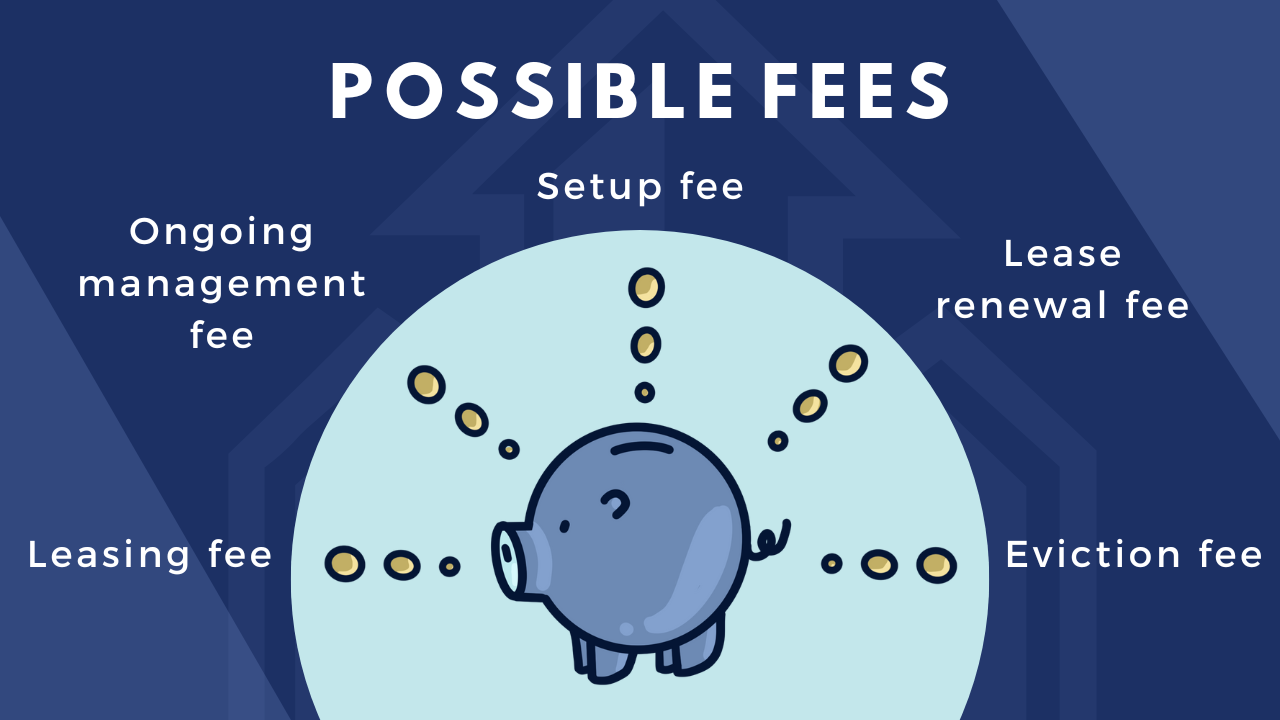
Further, if you do not charge enough for your services, then you will ultimately have trouble keeping your business afloat, as you may not have enough income to sustain your operations.
On the other hand, overpricing your services could deter high-quality clients from your company.
So, how do you sidestep these issues and strike the perfect balance in your pricing structure?
Well, conducting thorough market research on local pricing and competitors is key if you want to ensure a sustainable income for your business while still attracting new clients and remaining competitive.
For those who are relatively new to the real estate industry, understanding market value can be as simple as researching similar property management businesses in the area.
You can take this analysis further by exploring the unique fees and payment structures prevalent in the industry.
Some options for common fees to incorporate into your property management company’s pricing structure include:
- Setup Fee: A one-time charge for property owners to establish an account with your company, typically ranging from $200 to $300.
- Ongoing Management Fee: The primary source of your company’s monthly income, typically 3-10% of the property’s monthly rental income. This fee covers daily operations such as tenant relations, rent collection, inspections, maintenance, and repairs.
- Leasing Fee: A one-time fee charged when a unit becomes vacant, often equivalent to one month’s rent. This covers costs associated with finding a new tenant, such as cleaning, staging, advertising, tenant screening, and more.
- Lease Renewal Fee: Occasionally applied in more competitive rental markets, this one-time fee is paid by tenants when renewing their lease, typically a few hundred dollars.
- Eviction Fee: This fee is optional but recommended if you’re involved in the eviction process as the property owner liaison.
We recommend that you tailor your fee structure to the clients that you aim to attract. For large developments, consider high tenant turnover and emergency repair needs.
For higher-value properties, incorporate additional maintenance or convenience fees. Fee structures for long-term rentals will differ from those for short-term vacation rentals.
Regardless of your pricing strategy, prioritize consistent, top-tier service for all clients to maximize your property management company’s reputation and profitability.
At the end of the day, charging rates should never compromise your company’s service quality.
The Bottom Line
In order to start your property management company in Michigan, you will need to do the work to make sure that your business starts out on the right foot.
From sorting out legal matters early on to learning the best ways to advertise your company, if you follow these steps, we are confident that you will be able to sidestep common pitfalls and experience long term success in property management.
If you have any further questions about how to set your Michigan property management company up for success, contact our team at Upkeep Media.



